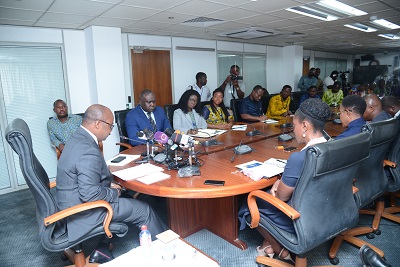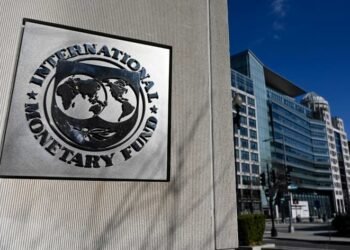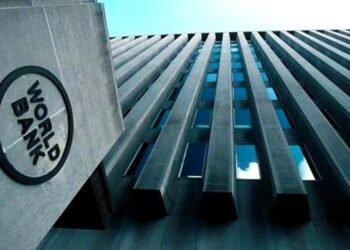The Monetary Policy Committee (MPC) of the Bank of Ghana (BoG) has announced that it has raised the policy rate by 250 basis points to 27.0 percent at a press conference today, Monday, November 28, 2022 after concluding its 109th meetings which took place last week.
This was after the Committee assessed that significant upside risks to the inflation outlook remain and such, there is the need to continue to anchor inflation expectations.
According to the Bank of Ghana, external shocks emanating from the COVID-19 and the Russia-Ukraine war have had severe consequences on the Ghanaian economy, reflected in high and rising inflation from exchange rate pass-through effects, and complicated the policy environment.
The foreign exchange market witnessed increased volatility, with intense pressure on the local currency, especially in September and October. The BoG highlighted that factors such as tightening global financing conditions, the sovereign downgrades, the de facto closure to the international capital market, portfolio reversals, and increased demand for foreign exchange amid supply constraints, contributed to the significant weakening of the Ghana cedi.
“More recently, the sharp depreciation episode has been driven by speculation of a possible debt restructuring which led to portfolio rebalancing in favour of foreign currency holdings as against Ghana cedi denominated assets. Looking ahead, the next few readings of inflation will shed light on the extent of pass-through of the accelerated depreciation of the Ghana cedi in October on inflation dynamics.”
Bank of Ghana
Commenting on the budget, the Committee noted that implementation of the 2022 Budget has come under severe stress. Revenue shortfalls, expenditure rigidities, lack of access to the international capital market to fund the budget, uncovered auctions and non-resident portfolio reversals have all acted to create a huge financing gap, it stated.
With access to external capital market closed and domestic market under performing, there has been severe pressure on the Bank of Ghana’s overdraft facility available to Government for short term cashflow management, without which the Government would have had difficulty in meeting its obligations.
Focus of the 2023 budget statement
The 2023 Budget Statement has committed to reset fiscal policy and firmly place it on the course of fiscal consolidation, the Committee noted. New revenue measures and expenditure rationalization measures have been announced. To guarantee debt sustainability over the medium term, a debt exchange operation is proposed to be undertaken to support the consolidation agenda, the Committee iterated.
“The broad expectation is for steadfast implementation of these measures to foster confidence, improve the debt-metrics and complement the current monetary policy stance at tackling current inflationary pressures. Although domestic growth conditions have been strong in the first half of the year, latest high frequency indicators point to some moderation.”
Bank of Ghana
The Bank’s CIEA contracted year-on-year in the third quarter, on the back of weakened consumption, trade, and construction activities. These trends, according to the Bank of Ghana, signal that growth may remain below potential levels on account of rising cost of living amid significant uncertainty in the outlook. Both business and consumer sentiments continue to soften and remain at low levels. Despite these trends, private sector credit growth, in real terms, remains relatively strong and provides scope for the real sector to continue on the path of sustaining a positive outlook for economic activity.
On the transmission of monetary policy changes to inflation, the Committee was of the view that there is evidence that the policy rate increases in the past few months have helped dampen the pace of monthly price increases.

Between May and August 2022, the monthly inflation eased from a peak of 5.1 percent to 1.9 percent. However, the Bank of Ghana noted that this was reversed in September and October on account of additional shocks from upward adjustment in ex-pump petroleum prices, utility tariff adjustments, and transportation fare increases.
In the event, inflation jumped in October 2022 to 40.4 percent and has dragged along with it, core inflation, which is almost at par with headline inflation and indicating significant underlying inflation pressures and upside risks to the inflation outlook.
“The inflation forecast shows that in the outlook, inflation will likely peak in the first quarter of 2023 and settle at around 25 percent by the end of 2023. This forecast is conditioned on the continued maintenance of tight monetary policy stance and the deployment of tools to contain excess liquidity in the economy.”
Bank of Ghana
The Committee however warned that there are some risks to this forecast that would have to be monitored, including additional pressures from the proposed VAT increase, and exchange rate pressures.
READ ALSO: NDC Cannot Win Elections With Violence But Strategies – Ofosu Ampofo






















